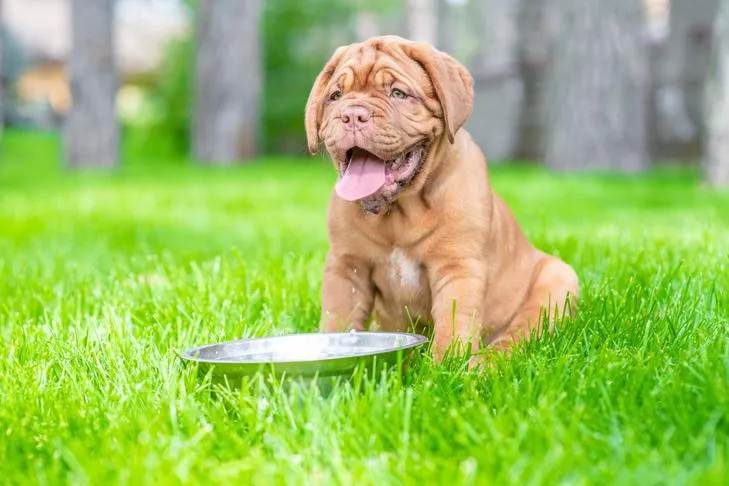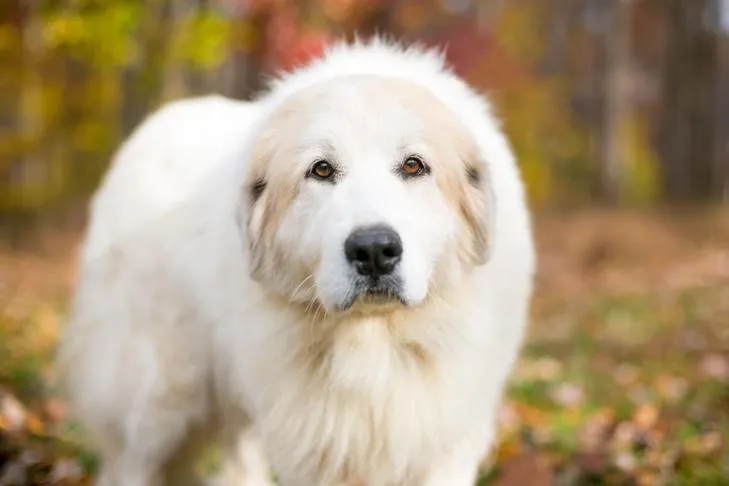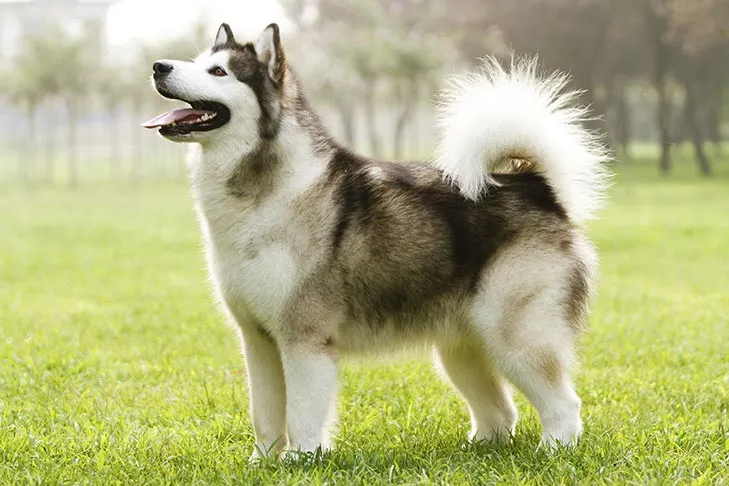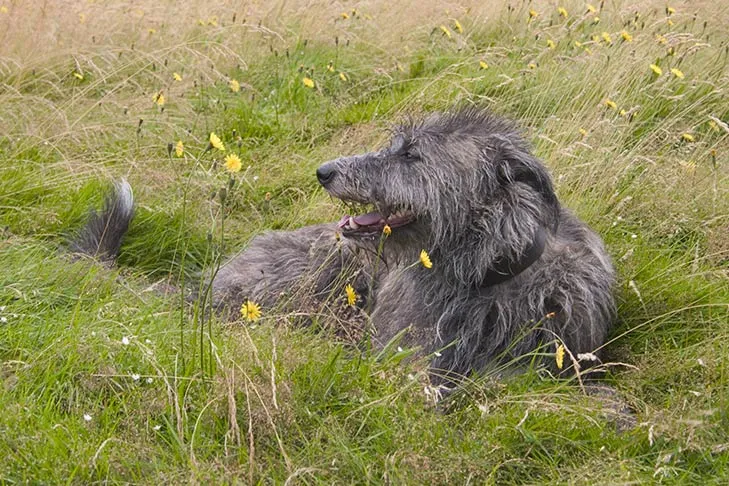Owning a large breed dog brings immense joy and a unique set of responsibilities, especially when it comes to selecting the Best Dog Food For Large Dogs. These magnificent companions, from spirited puppies to serene seniors, have distinct nutritional needs that differ significantly from their smaller counterparts. Providing a properly formulated, high-quality diet is paramount for their long-term health, ensuring an active life, and preventing various diseases. This puts considerable emphasis on owners to make informed choices amidst a sea of options, all claiming to be ideal.
Before you embark on the journey of choosing the perfect diet, understanding the specific nutritional requirements of large breeds at every life stage is crucial. This guide will delve into what makes the best dog food for large dogs, covering everything from essential nutrients for puppies to managing common health concerns in adulthood, helping you navigate the options for your beloved pet. To begin your research, you might find valuable insights from various [top dog food recommendations](https://dogcarestory.com/dog-food-advisor-best-dog-food/).
Understanding the Nutritional Landscape for Large Dogs
Dogs generally require a broad spectrum of nutrients, including proteins, fats, carbohydrates, vitamins, and minerals. For most owners, a complete and balanced commercial diet offers the most convenient and reliable way to meet these needs. Such foods incorporate a blend of meats, grains, vegetables, and fruits, formulated to comply with established dog food regulations. A high-quality dog food for large dogs combines these components in an easily digestible format, ensuring your dog receives optimal nutrition daily.
While many nutritional principles apply across all dog sizes, large breeds have specific dietary considerations. Most notably, large breed puppies necessitate specialized diets to mitigate particular health risks, and adult large dogs require careful dietary management to prevent orthopedic issues, obesity, and gastric dilation and volvulus (GDV), commonly known as bloat. Nutrition plays a significant role in the onset and management of these conditions. Should you consider a homemade diet or an alternative feeding regimen, always consult with your veterinarian. They can provide expert guidance on balancing your dog’s nutritional needs and answer any specific questions you may have.
Specialized Puppy Food for Large Breeds
Large and giant breed puppies exhibit a remarkably rapid growth rate, which extends over a longer period compared to smaller breeds. A puppy that weighs just a few pounds at birth might reach 150 pounds or more within its first 18 months. This accelerated development makes large breed puppies exceptionally sensitive to caloric and nutrient intake. Imbalances, deficiencies, or excesses can profoundly impact their health.
Excessive growth in large breed puppies is detrimental, with strong links to developmental orthopedic disease (DOD). DOD encompasses a range of conditions, including:
- Hypertrophic osteodystrophy
- Osteochondrosis
- Retained ulnar cartilage core
- Panosteitis
- Hip dysplasia
- Elbow dysplasia
Overnutrition, particularly excessive calorie intake, is a major contributor to rapid growth. This underscores the importance of feeding a large breed puppy food specifically formulated to meet their unique nutritional requirements. These specialized diets typically contain lower levels of fat, calcium, phosphorus, and vitamin D compared to regular puppy formulas.
 A Dogue de Bordeaux puppy drinking water, highlighting hydration needs for large breed puppies
A Dogue de Bordeaux puppy drinking water, highlighting hydration needs for large breed puppies
It might seem counterintuitive, but studies have shown that high levels of calcium and phosphorus can increase the risk of DOD in growing puppies. By carefully limiting the intake of these minerals, along with vitamin D and calories, specialized large breed puppy foods help to regulate growth rates and reduce the incidence of orthopedic problems.
The method of feeding also matters significantly. Veterinarians generally advise against free-feeding large breed puppies, as this has also been associated with DOD. Instead, offer several smaller meals throughout the day and closely monitor your puppy’s weight to ensure it remains within a healthy range. Your veterinarian is the best resource for determining the ideal weight range for your dog’s specific breed.
The Best Dog Food for Large Breed Adults
Once your large breed companion transitions from puppyhood to adulthood, a new dietary phase begins. This is an opportune moment to consult with your veterinarian for recommendations on the best dog food for large dogs in their adult years. Your vet can offer invaluable insights and observations tailored to your dog’s breed, size, activity level, and any emerging health concerns. They have access to comprehensive resources that will help you make an educated choice. Adult large breed formulas are designed to support sustained energy, maintain lean muscle mass, and promote joint health without encouraging excessive weight gain.
 A majestic Great Pyrenees dog portrait, representing the robust health of large breed adult dogs
A majestic Great Pyrenees dog portrait, representing the robust health of large breed adult dogs
Choosing the Best Dog Food for Large Breed Seniors
The category of “senior dog food” is a relatively recent development in the pet food industry. As of now, the Association of American Feed Control Officials (AAFCO) and the U.S. Food and Drug Administration (FDA) have not approved a specific “senior life stage” for dog food. This means that many senior dog foods on the market haven’t undergone the same rigorous testing as formulas for puppies or adult dogs. However, this doesn’t diminish their potential as a suitable option for your aging companion. Standard adult formulas, all life-stage formulas, and dedicated senior formulas can all be appropriate choices, depending on your dog’s individual needs. For specific recommendations, exploring [wet dog food for senior dogs](https://dogcarestory.com/best-wet-dog-food-for-senior-dogs/) might be beneficial, as it can be easier to chew and provides added hydration.
As large breed dogs age, they often develop health issues requiring veterinary attention and ongoing management. In such cases, a prescription diet might be the best dog food for large dogs in their senior years. These veterinary-approved foods are precisely formulated to address specific conditions such as kidney disease, joint problems, or cognitive decline. Always discuss with your veterinarian the most appropriate food choice for your large breed senior dog.
Common Health Concerns Influenced by Diet in Large Breed Dogs
Large and giant breed dogs are predisposed to several significant health challenges, many of which can be managed or exacerbated by their diet.
Orthopedic Disease in Large Dogs
Musculoskeletal and orthopedic disorders like hip dysplasia, arthritis, and osteochondrosis are more prevalent in large and giant breeds. These conditions are complex, influenced by genetics, growth rate, exercise, and nutrition. While owners have limited control over genetic factors (beyond responsible breeding practices), they can significantly influence growth rate, exercise levels, and nutritional intake.
Feeding an appropriate large breed puppy diet effectively reduces the risk of developmental orthopedic disease. In adulthood, maintaining a healthy weight through balanced diet and exercise is crucial. A high-quality diet with the correct balance of nutrients for large breed dogs supports strong joints, muscles, and bones, helping to prevent their premature breakdown. Many adult large breed formulas include joint-supporting supplements like glucosamine to further enhance orthopedic health.
Obesity in Large Breed Dogs
Obesity is a widespread problem, affecting an estimated 53% of American dogs. For large breed dogs, obesity carries particular dangers, significantly increasing their risk of developing or worsening orthopedic diseases later in life. The extra weight places undue stress on joints, muscles, and bones, potentially leading to severe conditions that impair their mobility and overall quality of life. Furthermore, obesity is linked to other serious health issues, including Type 2 diabetes, kidney disease, and high blood pressure. Managing weight effectively is a critical component of finding the best dog food for large dogs. Incorporating [high fiber foods for dogs](https://dogcarestory.com/what-high-fiber-foods-can-dogs-eat/) can aid in weight management by promoting satiety.
Bloat (Gastric Dilation and Volvulus – GDV) in Large Dogs
Bloat, scientifically known as gastric dilation and volvulus (GDV), is an extremely serious and potentially fatal condition disproportionately affecting large and giant breed dogs. It occurs when the stomach rapidly fills with gas and twists, trapping the gas and blocking blood flow. GDV can become fatal within a few hours. While surgical and medical treatments exist, prevention is the primary strategy. Here are several steps to help reduce your large dog’s risk of bloat:
- Feed multiple smaller meals throughout the day instead of one large meal to prevent rapid eating.
- Feed from floor level, rather than a raised feeder, unless advised otherwise by your vet for specific medical reasons.
- Avoid foods with very high-fat contents, particularly those listing oils and fats among the first four ingredients.
- Choose foods with larger kibble sizes, which encourage slower eating.
- Avoid strenuous exercise for 1-2 hours immediately before or after eating.
Opting for a specific large breed dog food formula from a reputable manufacturer is often the best dog food for large dogs to help prevent this condition. Do not hesitate to ask your veterinarian for their recommendations on appropriate foods and feeding strategies to mitigate bloat risk.
 An Alaskan Malamute standing alertly in tall grass, a large breed dog susceptible to bloat
An Alaskan Malamute standing alertly in tall grass, a large breed dog susceptible to bloat
Types of Large-Breed Dog Food
When selecting the best dog food for large dogs, owners typically choose between dry and wet food.
Dry Dog Food
Dry dog food, often the most common and economical choice, is convenient for storage and transport. Its solid kibble helps reduce plaque and tartar buildup on your dog’s teeth through mechanical abrasion. Dry food also serves as an easy, portion-controlled treat for food-motivated dogs.
Wet Dog Food
Wet dog food, with its higher moisture content, can be an excellent choice for large dogs needing increased water intake, particularly if they are prone to dehydration. Its soft texture makes it ideal for senior dogs or those with dental issues. The higher water content also means wet food typically has a lower calorie density compared to dry food, which can be beneficial for weight management.
Deciphering Dog Food Labels
Dog food labels are a rich source of information, though they can sometimes be challenging to interpret. With a vast array of large breed-specific foods available, knowing what to look for is key.
- Always choose a dog food labeled “complete and balanced,” indicating it meets AAFCO nutritional standards for a specific life stage.
- Prioritize foods that have undergone clinical trials and feeding tests.
- Be cautious of unregulated marketing terms like “all natural,” “human-grade ingredients,” or “premium,” which may not reflect actual quality.
- For bloat prevention, avoid foods with oils and fats listed among the first four ingredients.
 A graceful Scottish Deerhound resting in a field, symbolizing the importance of quality ingredients in best dog food for large dogs
A graceful Scottish Deerhound resting in a field, symbolizing the importance of quality ingredients in best dog food for large dogs
While labels don’t always reveal the quality of individual ingredients, the ingredient list does specify the sources of proteins and carbohydrates. This information is invaluable for [Organix dog food](https://dogcarestory.com/organix-dog-food/) or any dog with food allergies or sensitivities, or for owners seeking particular protein sources. Understanding [fruits dogs should avoid](https://dogcarestory.com/what-fruits-are-dogs-not-allowed-to-eat/) is also part of a holistic approach to dietary health.
How Much Should You Feed a Large Dog?
There’s no single, easy answer to how much food a large breed dog needs, as each dog’s caloric requirements are unique. While nutrition labels provide general feeding guidelines, these often need to be adjusted to your individual dog’s activity level, metabolism, and overall health.
The most effective way to determine appropriate portion sizes is to consult your veterinarian regarding your dog’s weight and body condition. Veterinarians use a “body condition score” to assess if your dog is at an ideal weight, overweight, or underweight. This score is a crucial tool for tailoring their food intake to achieve and maintain optimal health.
 A Bernese Mountain Dog puppy resting on a rug with a ball, illustrating healthy weight management for large breed dogs
A Bernese Mountain Dog puppy resting on a rug with a ball, illustrating healthy weight management for large breed dogs
Understanding the Cost of Large Breed Dog Food
Large breed dogs naturally consume larger quantities of food, which translates to higher feeding costs compared to smaller breeds. This is a significant consideration for anyone planning to welcome a large breed puppy into their home.
While it can be tempting to opt for cheaper large breed dog food to save money, it’s crucial to thoroughly investigate the quality of the food. Investing in high-quality dog food is an investment in your pet’s long-term health. Cheap, poor-quality food can lead to health issues down the line, potentially resulting in higher veterinary bills. Ultimately, you often get what you pay for when it comes to pet nutrition.
What Truly Is the Best Dog Food for Large Dogs?
The truth is, there isn’t one universal brand that stands out as the single best dog food for large dogs. The optimal choice is highly individualized, depending on your dog’s age, breed, activity level, health conditions, and even individual preferences. As a responsible owner, it’s your role to research and understand the nuances of large breed nutrition.
The most effective strategy for ensuring your large dog receives the best possible diet is to partner with your veterinarian. They can help you devise a lifelong nutrition plan that evolves with your dog through all stages of life, from energetic puppy to dignified senior, giving them the strongest foundation for a long, healthy, and happy life.
References
- American Kennel Club (AKC) – Expert Advice: Nutrition. (Accessed for general nutrition, obesity information).
- American Kennel Club (AKC) – Expert Advice: Health – Bloat in Dogs.
- AKC Canine Health Foundation – Dog Orthopedic Basics.
- Lust, G., et al. (1993). Developmental orthopedic disease in dogs: Current thinking on etiology and prevention. PubMed.
- American Veterinary Medical Association (AVMA) – Body Condition Score for Dogs. (Accessed for general information on body condition scoring).
